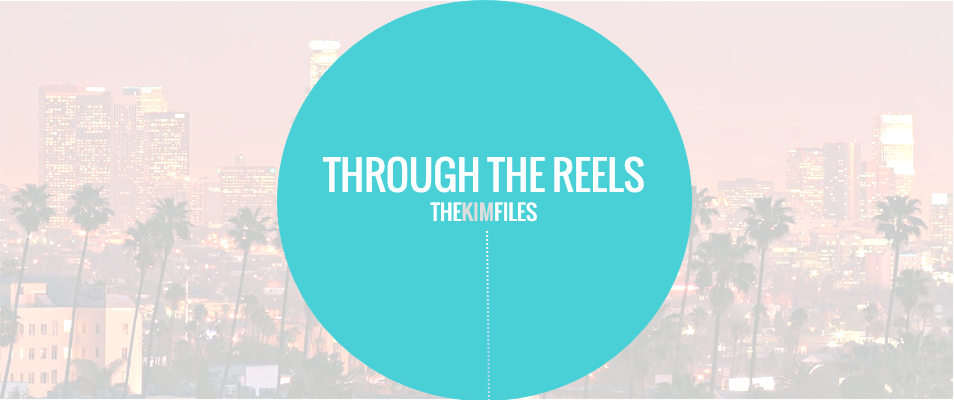 |
| The Hobbits in The Lord of the Rings: The Fellowship of the Ring (2001) |
Reviewing The Lord of the Rings trilogy as three separate films feels inherently unnecessary. They belong to each other, and none of them can stand alone. This is on purpose. As it were, three movies were made, so discussing them on an their individual merits is inevitable. That doesn't mean I couldn't enjoy watching #50 on the AFI Top 100 list, The Fellowship of the Ring, as a kick-off to a marathon of the trilogy as a whole, because let's be honest: if they could have, the AFI would have lumped all three together in this #50 slot. J.R.R. Tolkien's mythic epic of Middle-earth, about the little Hobbit who would go on to save the world from the dark power of the One Ring, begins as an origin story in the quiet land of the Shire. It will be nine more hours until we experience that peace and serenity again.
It has been 75 years since the events of The Hobbit, when a Ring of Power was discovered by a Hobbit named Bilbo Baggins (Ian Holm). Worn and beaten, driven nearly to madness by the burden of the Ring, Bilbo painfully parts with it at the behest of his old friend, the wizard Gandolf the Grey (Ian McKellen). But the Ring is desperate to be found by its true master, Lord Sauron, pure evil nestled in the heart of Mordor, halfway across the world. Gandolf entreats Bilbo's nephew, Frodo (Elijah Wood), with carrying the ring away from the Shire to safety. Accompanied by his Hobbit friends Sam (Sean Astin), Merry (Dominic Monaghan), and Pippin (Billy Boyd), Frodo embarks on a perilous journey to deliver the Ring to the fires of Mount Doom, the only place where it can be destroyed forever.
The introduction of the fellowship as a group comes about slowly in this first film. Everyone who crosses Frodo's path is a mystery—to him and to us—and rightfully, not to be trusted. It will take another film or two for us to truly know these men, elves, dwarves, and wizards. While Wood's Frodo is the story's center, though, Aragorn (Viggo Mortensen) is its strength. Mortensen is remarkably strong in this role, and his commitment to its physical demands (he became an expert swordsman during the making of the trilogy) is unparalleled. It shows, and it doesn't hurt that his character has the biggest arc among the group—other than Frodo, of course.

This is the only film in the trilogy where the entire group is together. The stakes are high, but nothing feels dire yet; only daunting. There is such a distance left to cross, even the audience feels that weariness. Director Peter Jackson was an absolute visionary in putting this project together. Fellowship is in many ways the 'origin story,' the introduction of every important character and the exposition pooled from all of the world's tireless history.
For a Tolkien novice like me, nothing is missing. Sure, more could have been added (watch any of these movies with a well-read Tolkien expert and you'll be fed endless 'fun facts' during a fantasy history lesson of missing details that'll make your head spin), but none of it needed to be there. To call a 3-hour film taut seems disingenuous, but it never drags. The score by Howard Shore aides in this effect, propelling the energy of the story forward, rising and falling in intensity and giving the movie its epic grandness.
All of the actors hold their own, even when the dialogue veers into cheesy territory. They all speak with earnest, but none more than McKellen. His commitment to the role of Gandolf is, for me, what gives the script's flourished English weight, drama, and emotional power. It can be difficult to hold onto the emotions in a film so action-heavy, but the balance is almost perfect. Where the film feels most dated is in its special effects. The make-up is second to none, but when you see certain sequences now, rare though they may be, that rely on bright, fake lighting and green screens, you notice the years on it. That, however, was inevitable, and for the most part, I continue to be impressed by every Orc and every Nazgûl.

There has never been a cinematic experience like The Lord of the Rings before. There have been beloved trilogies, sure, but never to this scale, this level of detail or commitment to storytelling. All three filmed at once, never an intention to 'only release the others if the first did well.' In a world where everything gets a sequel, it's easy to forget that just doesn't happen. The blockbuster success of Fellowship was never a sure thing. I remember the reaction as the final scene played out, Frodo and Sam venturing off the continue their journey, and the audience crying out "Wait, what, that's it??" What a pair of cojones on Peter Jackson. That's confident storytelling, right there, leaving us all in a state of desperation.
Jackson accomplished more than simply adapting a series of books successfully. He ignited the imagination of an entire generation of movie-goers, and introduced a whole new audience—a mainstream audience—to high fantasy. Its awards attention and eventual success aside, it is a major achievement that can't be ignored by the American Film Institute. It's not a surprise that it wasn't, as it is the most recent film historically to be included on the list, and justifiably so.
Is Fellowship your favorite in the trilogy? My reviews for the rest of the trilogy are forthcoming, so find out my favorite of the three soon!
Rating: ★★★★ / 5 stars
Check back next time for #49 on the list, Intolerance (and the only movie left on the list I've never seen) — Better yet, have your own viewing party and watch along with us!

No comments:
Post a Comment